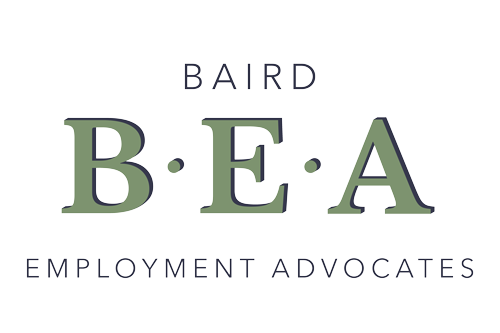Aside from the devastating effect on the lives of so many people and the worlds economy, the flow on effect of the current Coronavirus (Covid-19) pandemic is that thousands of small and large businesses are being impacted through a loss of trade. The nett effect to this point has been that many companies have been forced to cease operating, or at a minimum, drastically reduce their operations.
This of course means that many companies are needing to consider how they will survive the current commercial climate, and still be around to trade, when the COVID-19 pandemic begins to be controlled and ends.
The impact of less cash flow and requirement for products and services means there is a corresponding reduction in the need to have employees attending for work. In the absence of having the option for employees to work from home, many companies have already begun standing employees down, directing them to take accrued annual leave, or reducing hours.
In certain circumstances, section 524 of the Fair Work Act (s524) provides a means to lawfully stand employees down without pay for a stoppage of work for any cause for which the employer cannot be reasonably held responsible. By definition, the current COVID-19 pandemic meets this criteria and may allow employers to trigger stand down periods.
If an employee is stood down consistent with the terms of s524, there are a number of things to consider first to determine whether there is cause, and that there are no other terms or provisions included in an Award, Enterprise Agreement or Employment Contract that may provide some reference to consultation, notice or stand down. Of note, most of these industrial instruments will not contain stand down clauses (other than annual closures to perform maintenance etc), so the lawful application falls to s524.
Stand downs are a means by which the employment contract continues, annual and personal leave continues to accrue for example, but no wages are paid. It is an alternative in certain circumstances to making jobs redundant for relatively short periods.
An alternative to standing down an employee will be to agree that they work reduced hours/days, take annual leave, long service leave or accrued RDO’s first. By agreement, leave may be able to be paid out as a pro-rata payment at a reduced amount before a stand down without pay takes effect. Importantly, if an employee is receiving any kind of leave or RDO payment, they are not by definition of s524, stood down.
Depending on individual situations there may be agreement, for example over a 4 week period, that an employee takes 2 weeks as annual leave, and the remainder as being stood down with no payment.
It is also good practice to set a time frame for review after advising of a stand down. The period may be reduced or extended dependent on how the COVID-19 situation develops.
Separately, companies will need to determine:
• Employees cannot be stood down unless there is no work to be done and a company must cease trading, a mere “reduction” or slow down in business is not sufficient
• Can the employee be usefully utilised to do other work, can they work from home – you may need to demonstrate that you have considered these options?
• Is there an actual stoppage of work – there is nothing for the employee to do?
• Is it unsafe for emplyees to continue working?
• Why has the work stopped – can it be directly attributed to the COVID-19 pandemic – was “it” the cause, or could your business be seen as responsible for the work stopping?
In the event that the effect of COVID-19 develops into a long term impact, or even after it subsides, there may be irreparable damage done to your business that may require positions to be made redundant.
This will be a separate consideration that will require the normal compliance to the Redundancy Provisions of the Fair work Act, Agreements, contracts or Awards to be followed.
There are currently applications before the Fair Work Commission that may result in some Award variations to allow amendments to: annual leave, reducing hours and working at home. Currently the application will apply only to the Clerks Award, but it is likely given the current situation, that if approved, the amendments will flow to include other Awards.
• Change ordinary hours for an employee working at home
• Providing options to allow employees to manage school age children
• Allowing a business to provide one weeks notice to direct an employee to take annual leave
• Allowing employees to work under other classifications in certain circumstances
• Permitting employers to direct employees to take annual leave (currently by agreement only – or in the event an excessive amount is accrued)
• Flexibility regarding leave at half pay and working hours
• Allowing employers to engage casual and part-time employees for shorter hours than the normal minimum currently imposed.
In these unprecedented times communication with your most valued asset, your people, will be critical. They will be anxious and look to their employers for reassurance and be concerned about their future and security. Keep them up to date with developments and how the business is being impacted. Stay up to date with Government directives relative to trade and shut downs.
Promote, encourage and monitor hygiene and behaviour practices in line with health authority and Government guidelines and direction.
Disclaimer: This information is general in nature and based on current applicable legislation and should not be used as a definitive resource as to the steps you should take or as an alternative to professional advice. BEA encourages you to contact us to determine how this information may apply in your particular circumstance, to obtain further and better advice, and to assist with appropriate communication and process as may be determined.


